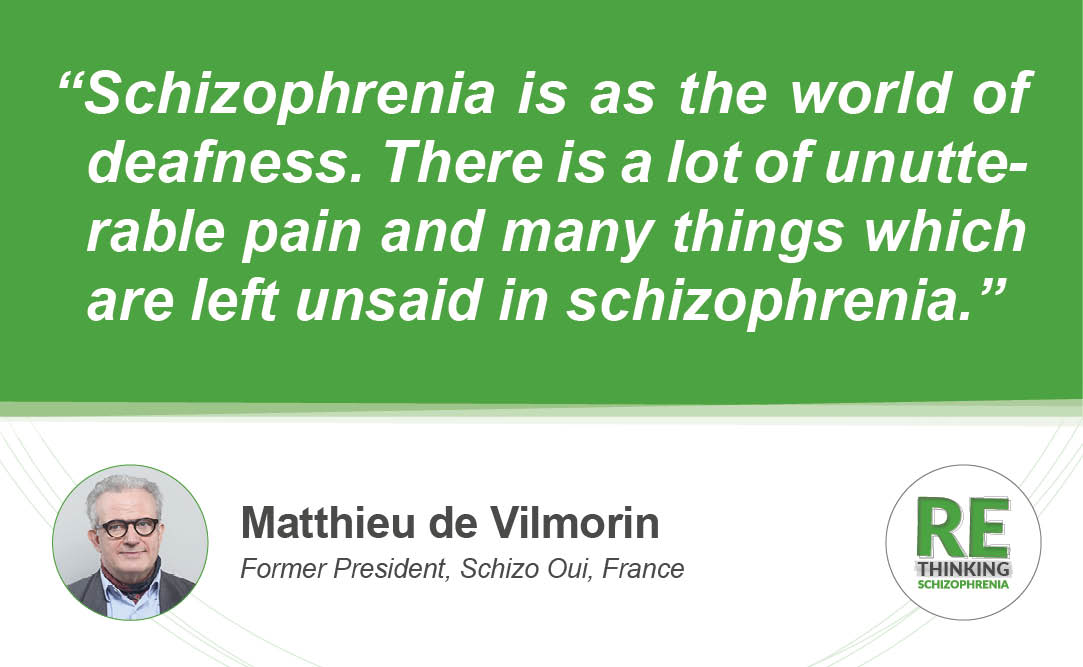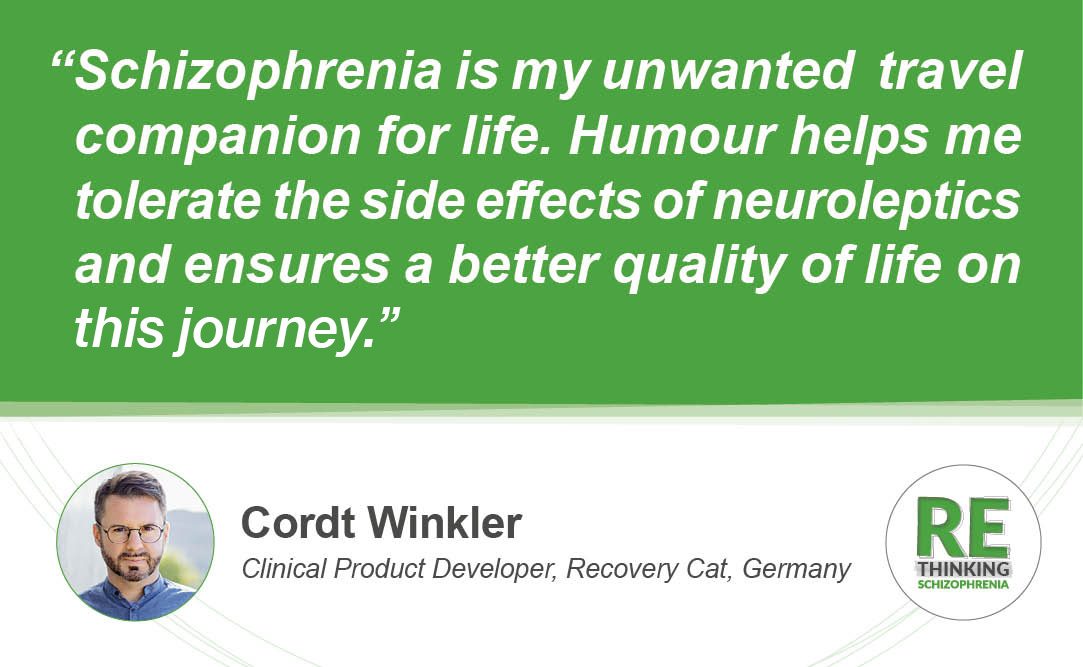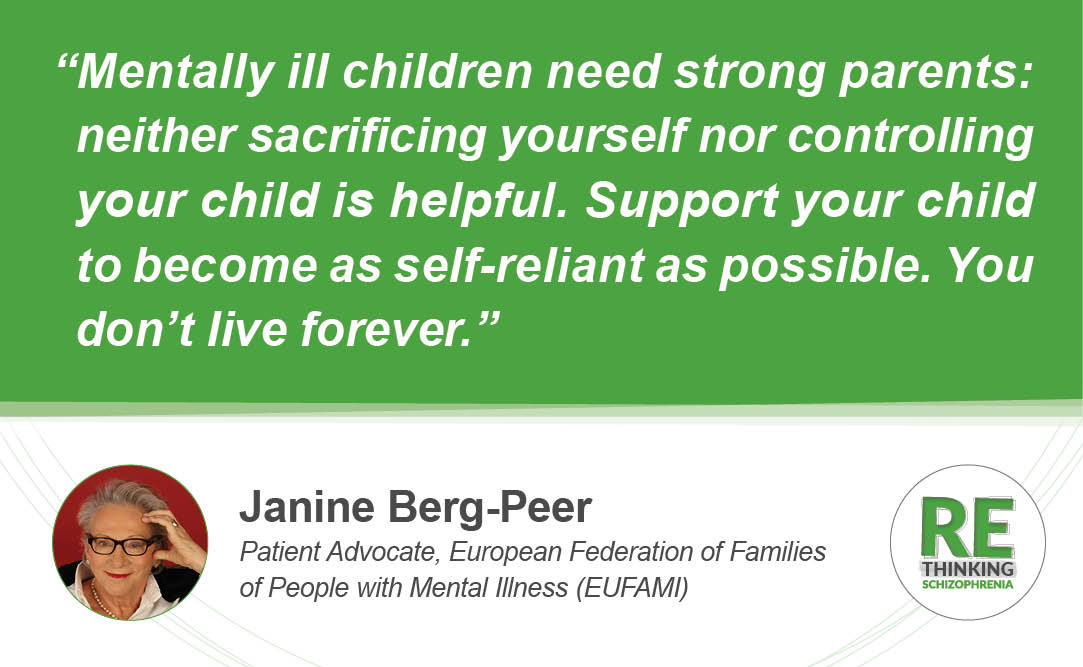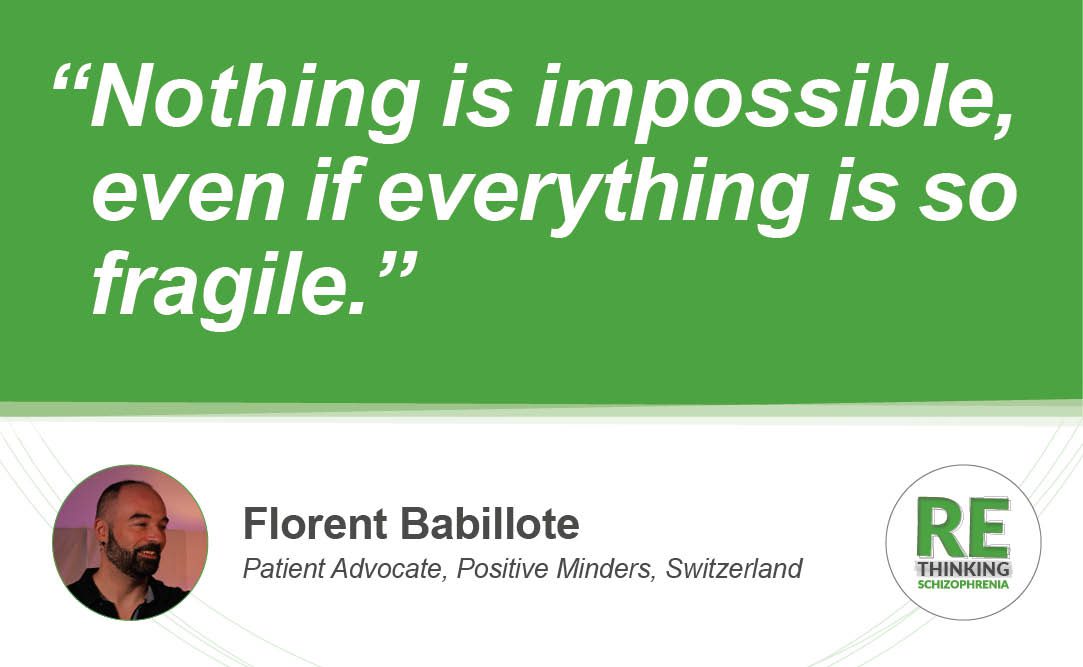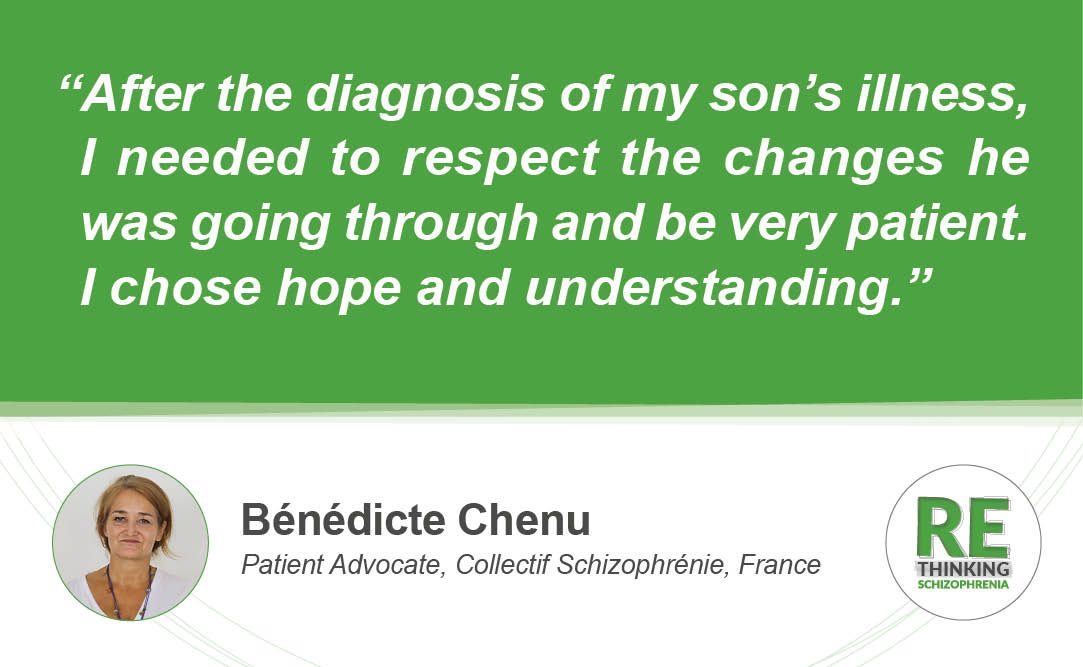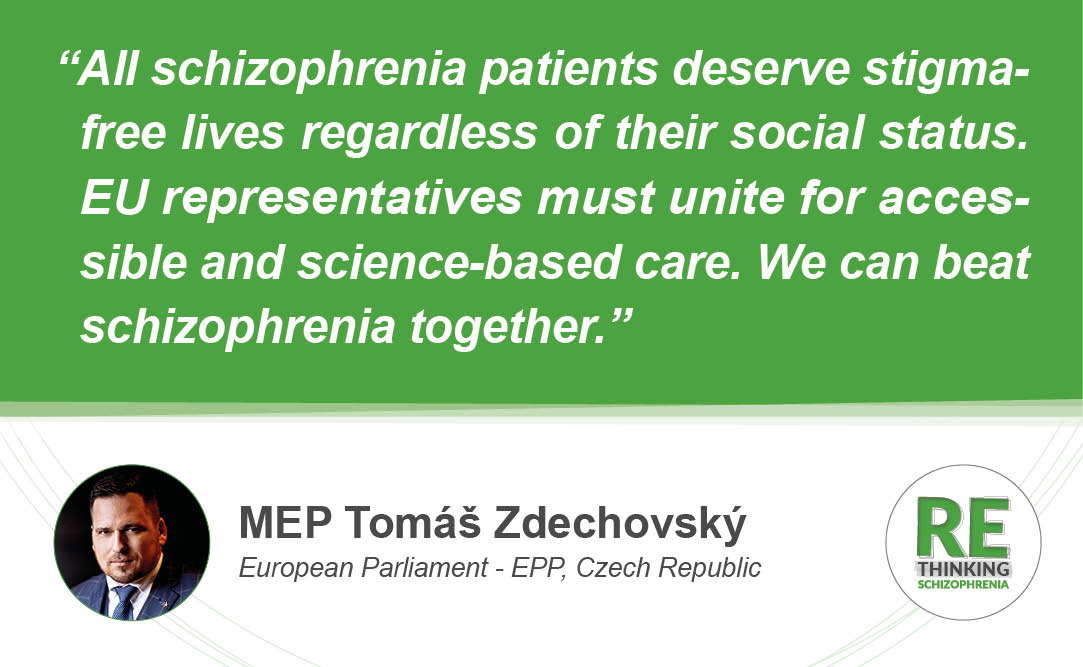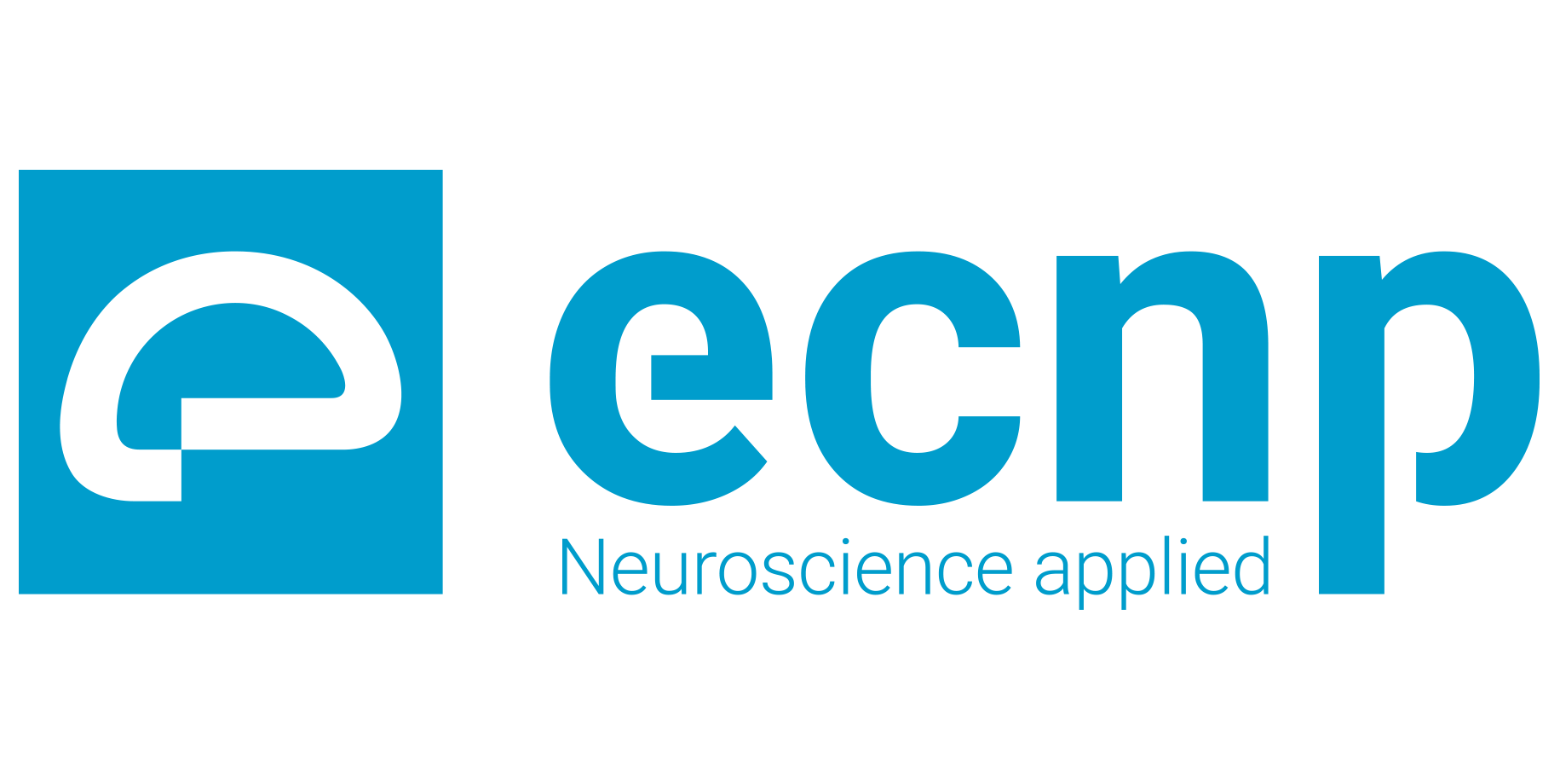
Rethinking Schizophrenia
Rethinking Schizophrenia is a research-driven project offering tangible policy changes to improve the lives of people living with schizophrenia across Europe. It challenges the status quo and refreshes the European policy debate on people living with schizophrenia and encourages multi-stakeholder-driven policy. The project falls under #BeyondTheVoices campaign.
About schizophrenia
Schizophrenia is a complex mental health condition identified as one of the 15 leading causes of disability globally. While an estimated 24 million people live with schizophrenia, approximately 7–8 individuals out of 1000 will be diagnosed in their lifetime. In Europe, schizophrenia affects 0.3–1.5% of the population. Despite the low prevalence, schizophrenia has a huge societal burden: often diagnosed between late adolescence and early adulthood, with later onset in women, it impacts every aspect of life, including relationships, education, and employment. Despite the substantial progress in the treatment, people with schizophrenia have a life expectancy 10-20 years below that of the general population. Associated with unemployment and early retirement, psychiatric comorbidities, and premature death, schizophrenia has the highest median societal cost per patient of all mental illnesses.
Beyond the Voices of Schizophrenia
Despite improvements and innovation in recent years, people living with schizophrenia face variations in access to optimal treatment and care. There is a lot about schizophrenia that is not fully understood and the high-quality care and support needed by people living with this condition is often unavailable.
There is a clear need to rethink the management of schizophrenia and redesign the care pathways to ensure optimal treatment and care for all people living with schizophrenia in Europe. Based around patient testimonies, the aim of the project is to highlight the need to optimise the way we manage schizophrenia by building a strong, coherent, evidence-based policy narrative which speaks to the current priorities in schizophrenia and draws from the current policy landscape in Europe.
The Rethinking Schizophrenia project falls under the Rethinking the management of brain disorders series, research-driven projects offering policy recommendations to make tangible changes with the aim to improve the lives of people living with brain disorders, neurological and mental alike, across Europe.
Optimising Schizophrenia Care Pathways in Europe
The second phase of the project, Rethinking the Schizophrenia Care Pathway, co-created by the European Brain Council (EBC) and the European Psychiatric Association (EPA), aimed to examine health gains and societal impacts resulting from optimal healthcare interventions in comparison with current care or inadequate treatment and convert data evidence to policy recommendations on how to improve the care pathways.
With a typical onset during late adolescence or early adulthood, schizophrenia requires lifelong treatment, combining pharmacological and non-pharmacological approaches. Early symptom recognition and timely interventions can greatly enhance functional recovery, however recent reports have identified significant gaps in access to timely assessment and shared decision-making, compounded by the unprecedented demand for mental healthcare among young people. Such high demands create challenges for health care services in delivering not only timely and evidence-based care but also safe and person-centered, as recommended by the World Health Organization. There is a need to improve prevention and care of young individuals with first episode psychosis (the onset of schizophrenia) to safely and effectively transition between various types of care tailored according to individual needs.
To address these issues, the Rethinking Schizophrenia project conducted an analysis of patient care pathways across nine European countries (Belgium, Denmark, France, Germany, Hungary, Italy, Poland, Spain, and the UK). This project aims to put forward an in-depth patient care pathway analysis in order to define specific strategies to advance the prevention and treatment of schizophrenia. Findings will inform policy recommendations to enhance care pathways for young individuals experiencing first-episode psychosis.
By collecting information from over 200 health practitioners, this project conducted an in-depth analysis of patient care pathways across nine European countries, aiming to define specific strategies to advance the prevention and treatment of schizophrenia. Results highlight the urgent need for a more coordinated and multidisciplinary care approach to schizophrenia care, which fed into these policy recommendations of the report.
Three key priorities are highlighted for enhancing schizophrenia care:
• Early assessment and intervention
• Continuity of care and shared decision-making
• A recovery approach in the treatment journey
Experts involved in the project
Report endorsers
This project was supported with a grant from Boehringer Ingelheim. The company had no involvement in the research nor in the drafting of the report. All outputs are non-promotional and not specific to any particular treatment or therapy.


